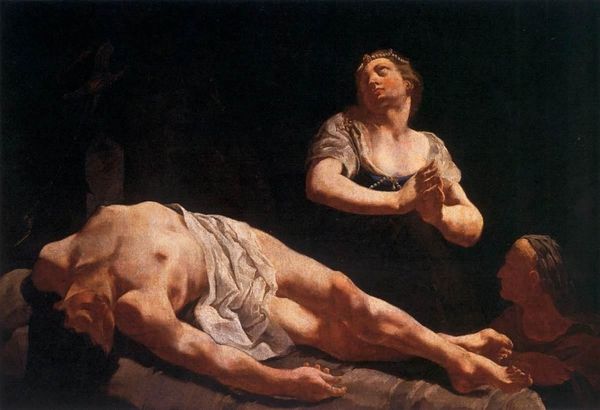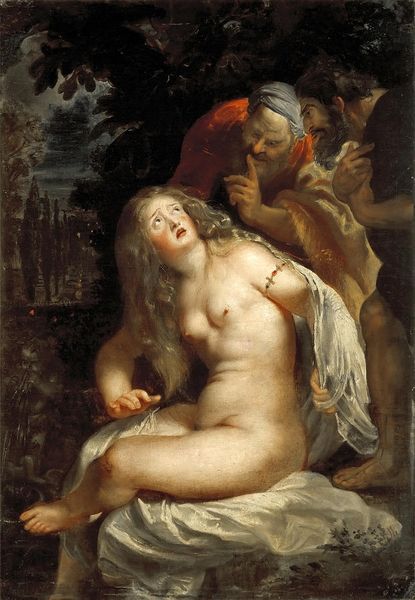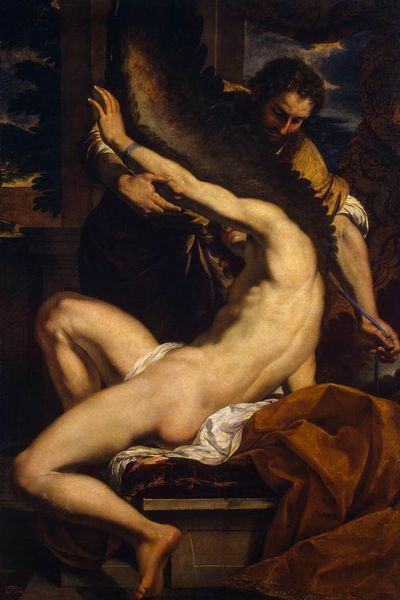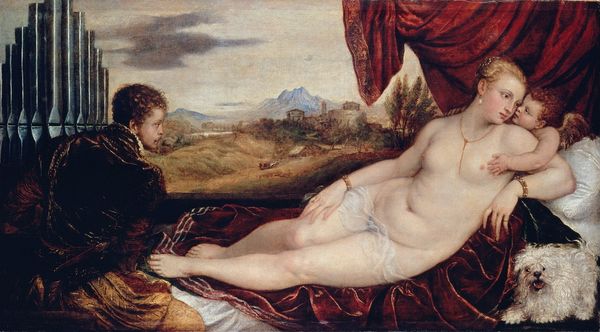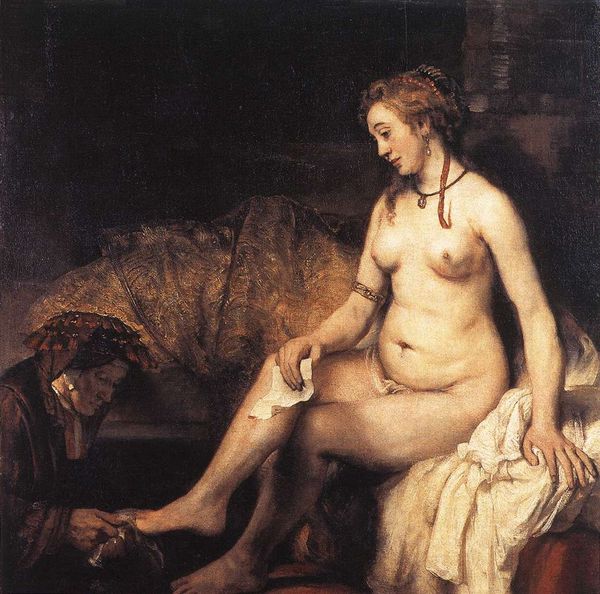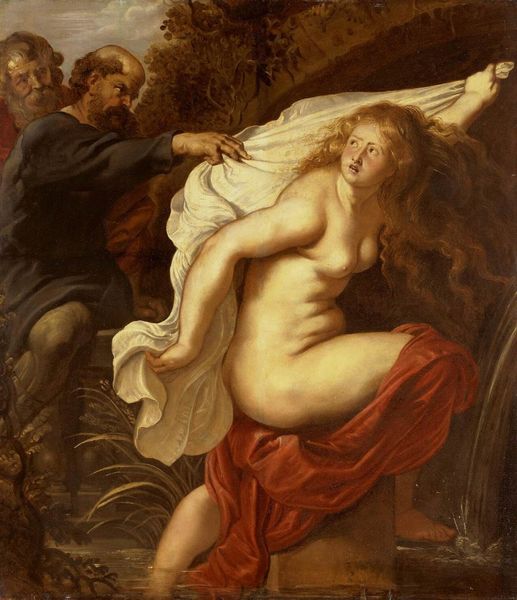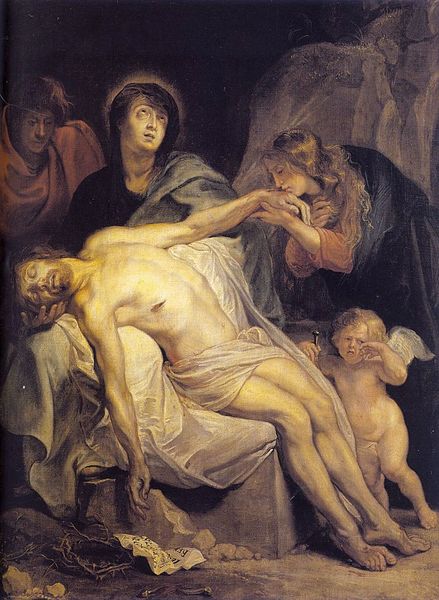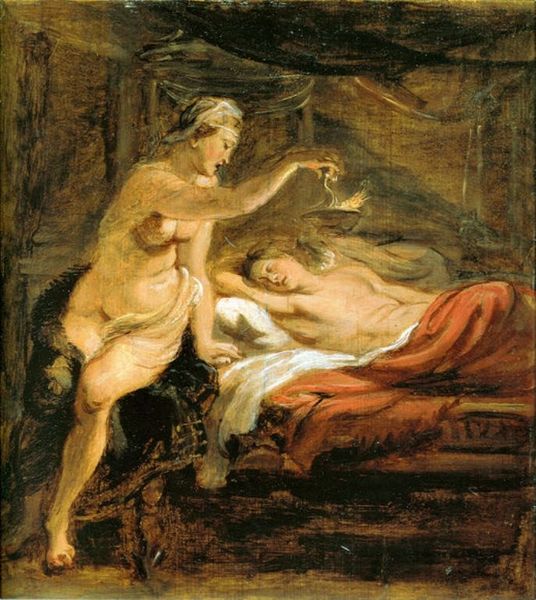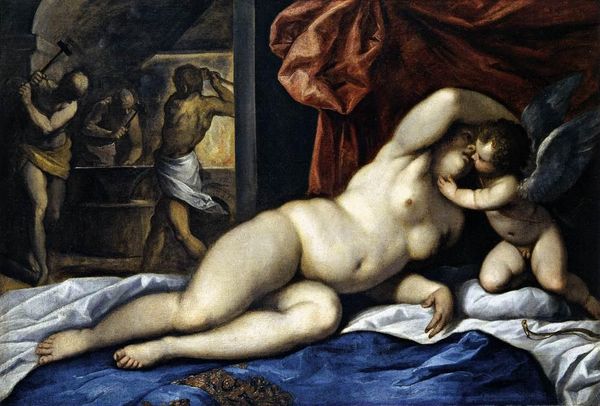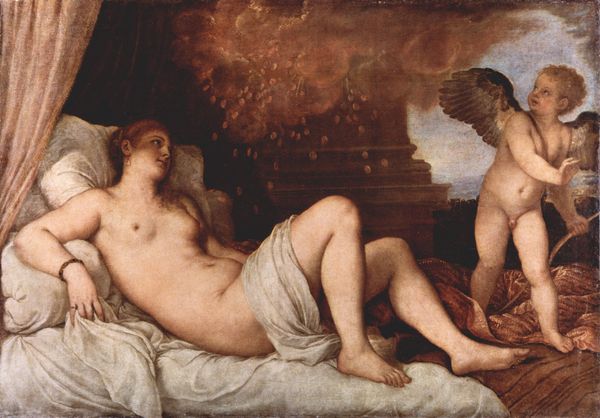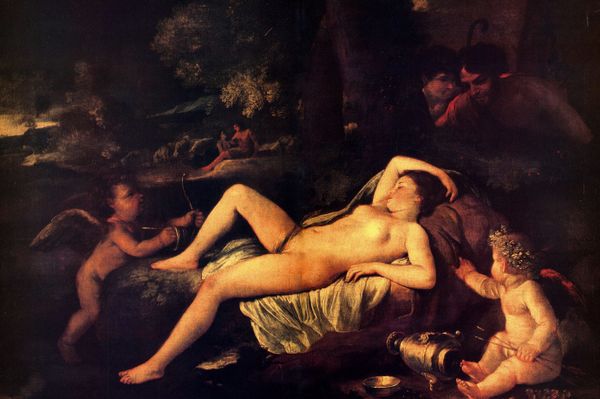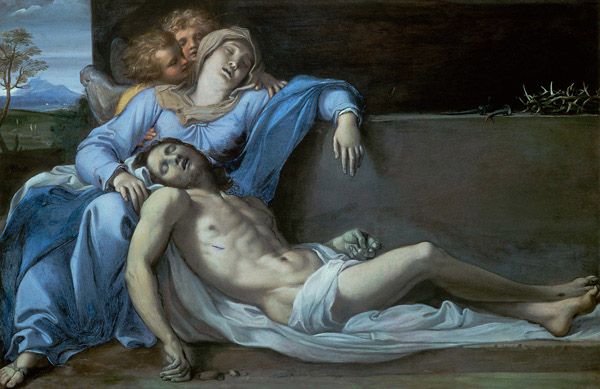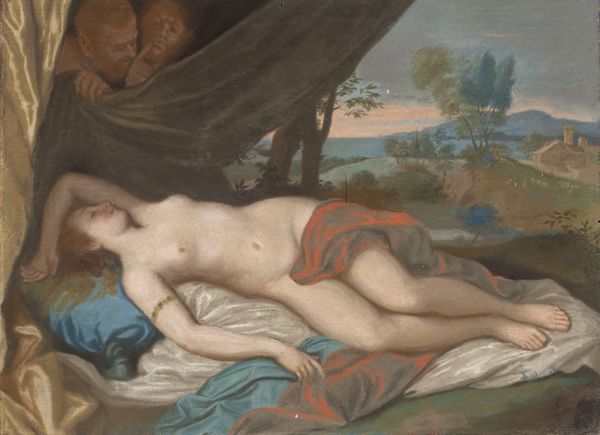
oil-paint
#
allegory
#
baroque
#
oil-paint
#
figuration
#
oil painting
#
history-painting
#
nude
#
portrait art
#
erotic-art
Copyright: Public domain
Peter Paul Rubens created this compelling scene with oil paints on canvas. Immediately striking is the contrast between the luminous flesh tones of the sleeping Angelica and the somber, earthy hues that shroud the hermit and the menacing figure lurking in the background. The composition divides the scene into distinct zones of light and shadow, creating a visual dichotomy between purity and temptation. The linear arrangement of Angelica's body, reclining diagonally across the canvas, draws the eye from the bright foreground into the darker recesses of the landscape. This use of light and shadow plays with our perceptions. Rubens destabilizes traditional notions of virtue and vice, prompting us to consider the complex interplay between desire, morality, and representation. The formal qualities of this painting—its dramatic use of color, dynamic composition, and carefully rendered textures—serve not only as aesthetic devices but as integral components of a broader cultural and philosophical discourse, inviting ongoing interpretation and re-interpretation.
Comments
No comments
Be the first to comment and join the conversation on the ultimate creative platform.
